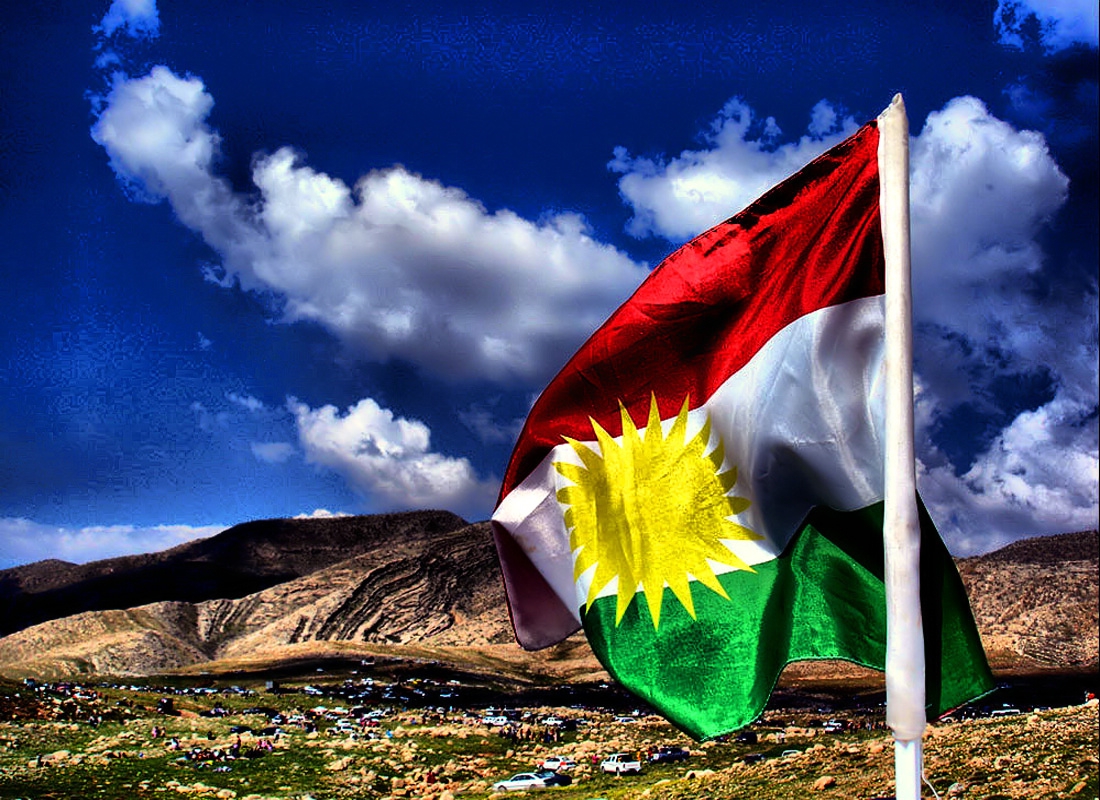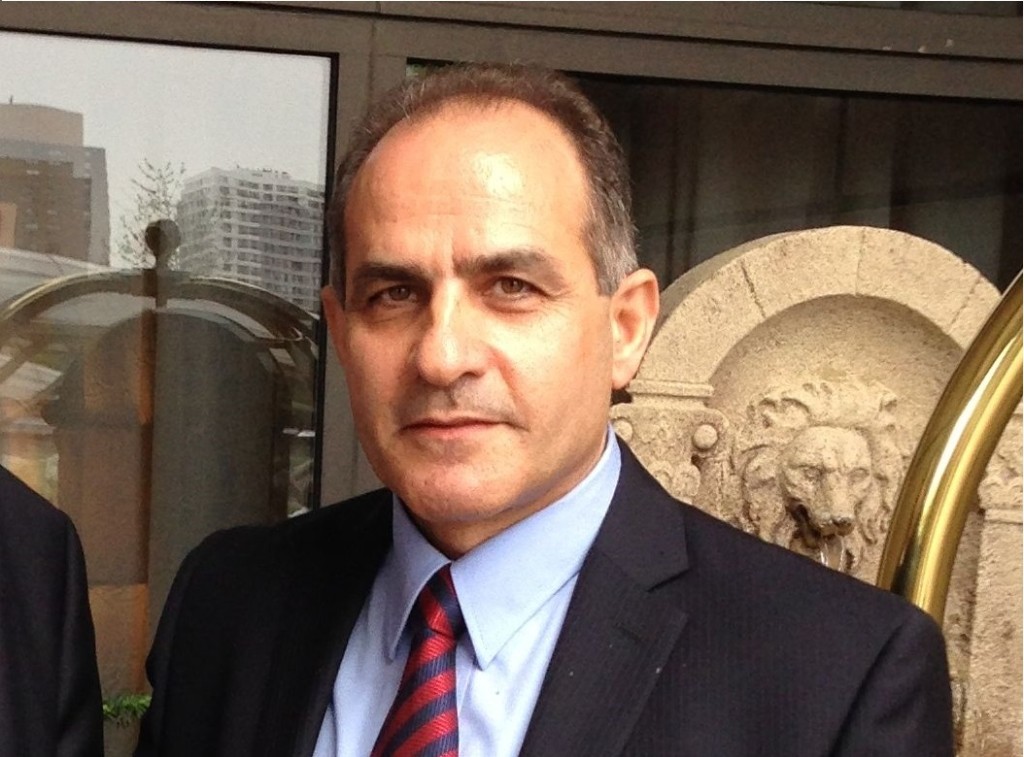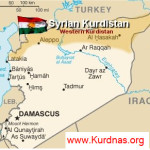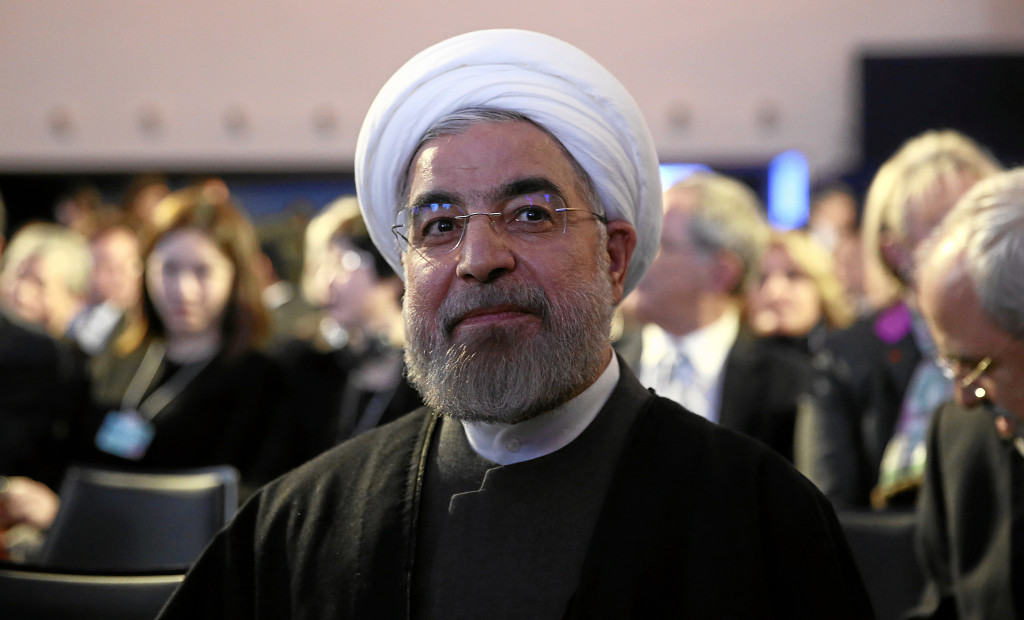I have worked with Sherkoh for 6 or 7 years trying to get recognition of an independant Kurdistan. I introduced him to a number of important analysts who advocated his cause. I also introduced him to the PMO’s office. I am thrilled that his efforts are finally bearing fruit. Ted Belman
While much of the Middle East is sucked into a chaotic bloodbath, there is one people that stands firm and maintains its position – the Kurds • The crisis in Iraq and Syria is also an opportunity for the Kurds – and for the State of Israel • Dr. Sherkoh Abbas, President of the Kurdistan National assembly of Syria, a man in the eye of the storm, provides an unconventional take on events in Syria and Iraq • He emphasizes the Kurdish role in the new order as well as the common enemy: the Israeli regime • A view from the inside
The rapid advance of the Islamic State of Iraq and the Levant (ISIL) in northern and central Iraq and the impending threat to Baghdad has focused on the world’s attention on the Kurds – seemingly the sole functioning bastion of defense against the jihadi offensive.
At this critical juncture in time, Mida spoke to Dr. Sherkoh Abbas, President of the Kurdistan National Assembly of Syria, on the situation in Kurdish Syria, the political dimension of the Syrian Civil War, Assad, ISIL, Iran, US policy and the Israeli angle. The result was an illuminating inside perspective which proved, once again, that there is always more than meets the eye in our region.
Dr. Sherkoh Abbas’ family hails from the Kurdish area of Syria and part of the Kurdish region in Turkey, where it has been present and politically-active for over 400 years. Abbas himself has been active on Kurdish issues for over 30 years. In 2006, he formed the Kurdistan National Assembly – Syria (KNAS), an umbrella group for Kurdish political parties and tribal, religious and civic leaders opposed to Assad’s dictatorship and advocating federalism for Syria.
The organization, in conjunction with the Kurdish National Council (KNC), has since lobbied in Washington and Brussels for the Kurdish cause within a democratic, federal Syrian state, calling for regime change and an end to the oppression and “Arabization” of the Syrian Kurds:
“Our goals is to promote democracy and to ensure Syria does not become radical and Jihadi, but we mustn’t forget that the so-called ‘secular’ Assad regime is just as bad for Syrians and the international community.”
What role do you envision the Kurdish forces taking in both countries? What scenario do you see unfolding?
I believe the best move for the Iraqi Kurds, following the takeover of disputed Kirkuk from the fleeing Iraqi Army, would be to create a stable, humanitarian buffer zone between them and the battle zones and allow all refugees fleeing it to live in it. This would allow the international community to send support via the Kurds and prevent Maliki, Iran and groups from their camp from attacking the Kurds in the future. This is the optimal move for the Kurds, and I don’t believe they should go beyond it.
As for the Syrian Kurds, the PYD/PKK that control most of the Kurdish region in northern Syria are part of the Assad regime and do not represent the Kurdish population. The so-called Declaration of Kurdish Local Autonomy is far from the truth – they have not been promoting democracy: there is oppression, lack of freedom and the regime is fully present alongside Iranian agents. On their watch, over 250,000 Kurds fled the area, creating a demographic change. The Kurds do not trust or support these groups, but they are the government and have all the money, weapons and support they receive from the Assad regime, Iran and Russia, and even Maliki.
The Syrian Kurds are in a very desperate situation, and it’s important for the international community to take a good look at the entire region and realize that a loose, decentralized federal state in Syria is the only way to prevent dictatorship, foster democracy and bring back stability. Anything else is a recipe for disaster and another dictatorship.
You mentioned that the Kurds in Syria do not support the PYD/PKK. Who do they support and who wields political power?
The overwhelming majority of Kurds believe they should have a federation. All 15-16 Kurdish political parties, the Kurdish National Council and the Kurdish National Assembly of Syria believe in a federal system for Syria. Only one group, the PYD/PKK, is supported by Assad with the goal of cowing the Kurds into not controlling that area, creating a rift between the Arabs and Kurds and deflecting the attention from the regime.
Assad was very clever in withdrawing his forces from the area and handing it over to the oppressive PYD, so that the locals look at his regime as a better alternative. He has now begun to remove the PYD from power. In one or two years’ time, when the regime regains complete control, it will have eliminated completely the PYD. They are disposable. Assad removed his forces from the region with the intention of portraying the Kurds as collaborators with his regime, and they indeed incurred the criticism of the Syrian opposition.
Assad, Obama, Rouhani and Israel
Abbas’ fears about the PYD have what to rely on. PYD has been running a pro-Assad repressive regime in North Syria, receiving Iranian weapons in compensation. A statement by the US Embassy in Damascus denounced this regime for its methods:
“The United States condemns the Kurdish Democratic Union Party’s (PYD) deadly response to peaceful demonstrations in the city of Amuda, where PYD authorities have killed six people, wounded dozens, and detained 90 activists during several days of clashes”
A few months later, when the PYD regime declared a Kurdish autonomy in Syria, Mustafa Barazani, perhaps the most preeminent Kurdish leader today, condemned the move, calling the regime an “autocracy”. Dr. Abbas thinks that this is a deliberately subversive policy on Assad’s part:
As part of his “divide and conquer” strategy, he has established a militia of Arabs, Christians and Baathists to fight the Kurds, and is negotiating with the Kurdish Regional Government in Iraq on establishing a Kurdish political party that will vie for power with the other elements I mentioned, preventing any one party from wielding complete power. The two groups I represent, the KNAS and the KNC, are the largest political groupings in Syria and have the ability, given the means, to stop the PYD and the ISIS in their area. However, we should not engage in any action unless we know the end goal is a federation for the Kurds.
Abbas also has some choice words for the leader of the Western world on the matter:
I see President Obama as the worst president in history in terms of foreign policy. His actions have brought the United States’ global standing to an all-time low. Nobody fears American strength and power anymore and nobody, friend or foe, believes in its foreign policy, after it shifted its red lines and bargained with terrorists. For example, Israel probably doesn’t believe in US protection anymore and has to fend for itself, and look at the case of the Ukraine. The allies have ceased to believe that the US will stand behind its guarantees.
Unfortunately, while Congress has been inconsistently supportive of the Kurds, the State Department and the White House have never really addressed the Kurdish issue and have always supported the Brotherhood and political Islam in Syria, despite our warnings, rather than supporting democratic groups.
Assad knew how to make quick use of this to his advantage by playing the “radical Islam” card among the Syrian people, as I mentioned. Disastrous US foreign policy is very much to blame here. For example, this administration, after spending billions of dollars and losing thousands of lives in Iraq, has handed it over on a golden platter to Iran, which now has unfettered access through Iraq, all the way to Syria, Lebanon and the Mediterranean, to undermine countries in the area as it pleases. Iran has been emboldened and empowered thanks to the US administration.
And what of Israel, a friend of Kurds for decades, no?
Israel needs to realize that this is the best opportunity for it to help the Syrian people, because they no longer believe Israel is their number one enemy – it is Assad that is perceived as such. This is the best possible opportunity to harness that goodwill, help the Syrian people, build a relationship and make peace with them, rather than seeking another dictatorship, as the US is doing.
We perceive the Kurds as the engine of democracy in the Middle East, and they need to be supported. We have never had any hatred for the Israelis or the Jews – on the contrary. We have shared history and tragedies, and we believe this is an opportunity for them to help the Syrian people and the Kurds, and have a stable Syrian neighbor rather than a border with Iran through Lebanon, Syria and the Gaza Strip.
Abbas also has some practical suggestions for Israel:
Israel could also engage elements within the Syrian opposition and make use of public diplomacy. Just sitting and doing nothing will not serve Israel in the long run and will actually embolden Iran, which will dominate the entire region.
The Iranian regime is extremely wily, it is building nuclear weapons and forcing a superpower to hand Iraq to it and abandon Syria. I believe Israel is making a serious mistake in waiting for the US under Obama to act, and should seize the opportunity to ensure federalism prevails in both Syria and Iraq by supporting the Kurds.
The Kurds would never allow a future [federal] state in Syria or Iraq to threaten Israel. This is also an opportunity for Israel to stop Iran and cause its regime to implode by providing support to democratic groups in Iran such as the Kurds, Azeris and Baluchis with the goal of regime change and a federal state in Iran.
To sum it up, by supporting the Kurds throughout the region, Israel could help create an Israel-friendly Kurdish zone stretching from the Mediterranean all the way into Iran, and serving as a buffer between it and the Shiite Crescent and “Neo-Ottoman” Turkey. The Kurds are willing, but Israel needs to take action.
Here’s hoping someone in Jerusalem is listening.







1 Comment / 1 Comment